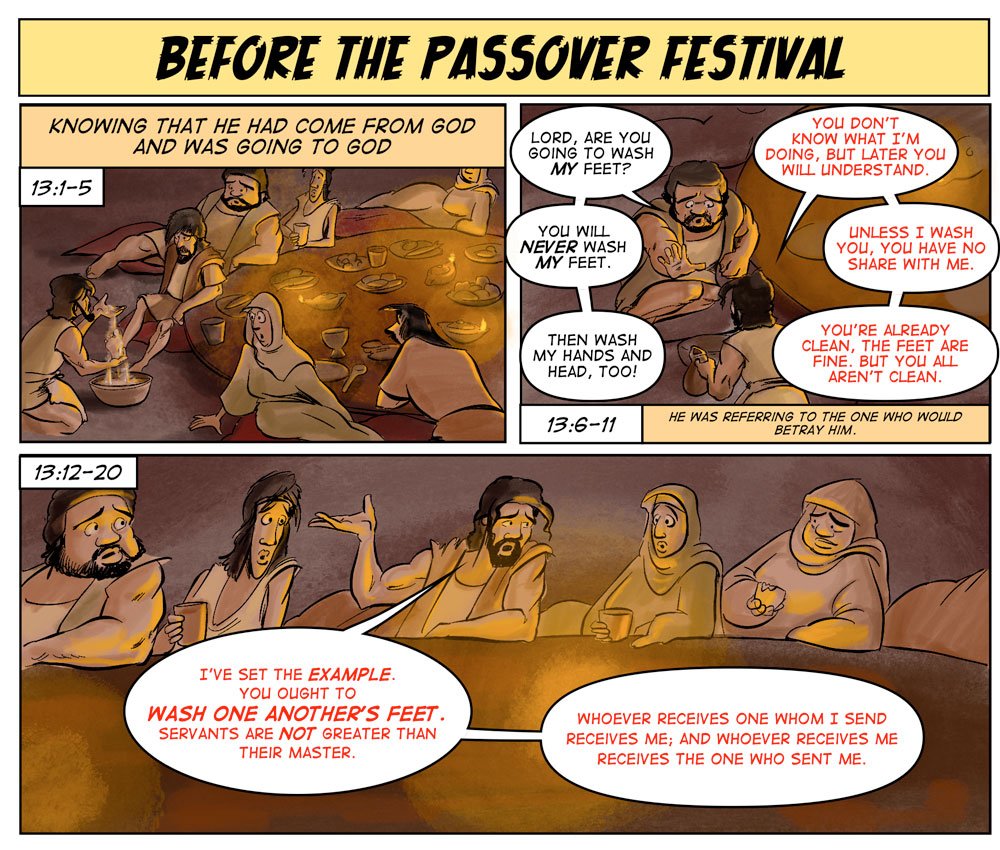Grow Guide | March 13, 2022
Better Together
John 13:1-17
Connecting Questions
How do you feel about being barefoot, or having people touch your bare feet?
Have you ever received an unexpected gift or act of service? How did it make you feel?
Context
This week continues our series Better Together as we walk with Jesus in the final week of his life. John 13 marks the beginning of the end for Jesus. He has just come off of raising Lazarus from the dead in chapter 11. That amazing event got the whole region buzzing about Jesus. That buzz led to a large crowd welcoming Jesus into Jerusalem by waving palm branches and shouting “Hosanna!” in chapter 12. The religious leaders were furious and terrified of the commotion that Jesus was stirring up. They were afraid these events would trigger the wrath of the Roman Empire and a lot of people would be hurt if Jesus was not stopped.
The text this week marks the beginning of a long, private dinner that Jesus had with his disciples. The conversation spans across chapters 13-17. It is an intimate setting in which Jesus pours out his heart to the people he loves dearly. After this meal, he will be betrayed and publicly executed.
Cultural note: Everyone washed their own feet before entering a house, because the roads were very dusty and everyone wore sandals. To wash another person’s feet was considered a lowly act, fit only for a servant or someone of a lower class than the recipient of the washing.
Look at the Book
Read John 13:1-11.
What did Jesus know Judas was going to do?
What did Jesus know about himself (verse 3)?
What did Jesus do for his disciples?
Why do you think Peter was resistant to having Jesus wash his feet?
What was Peter communicating to Jesus by saying, “Lord, not my feet only but also my hands and my head!”
Who did Jesus mean when he said, “not all of you are clean.”
Think about this: Jesus washed the feet of the one he knew would betray him.
Read John 13:12-17.
How did Jesus explain his actions to the disciples?
What was Jesus’ challenge/direction to his disciples moving forward?
Taking it Home
What shifts in attitude might have to take place if everyone saw it as their duty to wash everyone else’s feet?
What would it look like--in practical, everyday ways--to practice a spirit of foot-washing with our neighbors?
Is there someone in your life that you might consider in the “Judas category” for you? Would you be able to wash that person’s feet?

